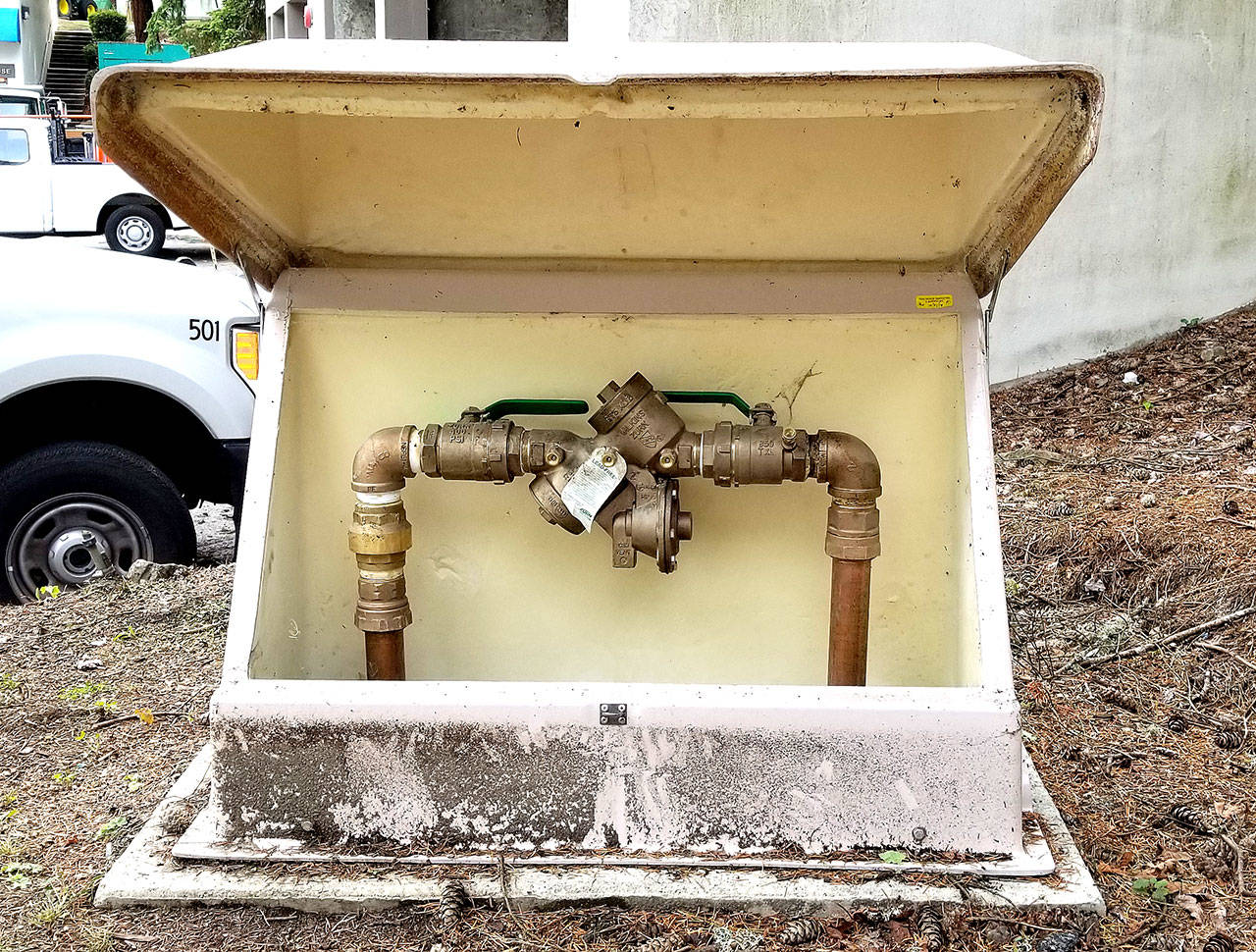Annual backflow assembly testing is overdue as of June 30, and more than 130 locations have yet to submit required test results to the city’s water utility, as of Sept. 12.
Backflow prevention assemblies are mechanical devices, proven and tested by agencies such as the Washington State Department of Health (DOH), attached to high-risk cross connections to prevent water from going in the reverse direction of flow and potentially contaminating the city’s drinking water.
There are two types of pathways for contamination to enter a water system — back siphonage and back pressure — Brian McDaniel, utilities operation manager explained. Backflow assemblies protect against those two conditions.
“The city, as the water system, we need assurances and safeguards to make sure that we are doing our best to protect our drinking water and make sure that it’s at the highest quality. One way to do that is by ensuring these backflow assemblies are functioning properly,” McDaniel said. “Each backflow assembly is protecting the drinking water in one fashion or another. It’s imperative that we get that testing back.”
State law requires annual testing of these assemblies, which exist on about one third of the Island’s water connections, mapped out in a city maintained database of water and irrigation systems.
McDaniel explained that each site — an individual water service location — can have multiple assemblies, also referred to as hazards. On Mercer Island, there are more than 3,000 sites, the majority of which are residential, that all together contain more than 5,000 hazards.
The tardy consumers have already received three written notices. Next they will receive a door hanger warning of imminent shutoff. If they have not submitted their test results by Sept. 30, their water service will be terminated.
McDaniel said his team initially sent out some 3,500 letters of notice in March. Each year, when they get to this point in the notification process, they still have many outstanding locations. In 2018 they shut off water service for fewer than 10 sites.
Each location also receives a convenience list of backflow assembly testers who have already submitted credentials to the city and are certified by the DOH. Similarly, qualified contractors can be found on the DOH’s website, but they must have a city business license.
Consumers can submit test results through the city’s online reporting system at www.mercergov.org/backflow.
If a water quality event were to happen today — like when E. Coli was found in the water system in September 2014 — McDaniel said his team could look to the list when trying to find the source of contamination.
“With the customers that have complied [by submitting their test], I can say with a fair amount of certainty that a contamination did not come from them,” he said. “The noncompliant ones, I cannot rule them out as a source of contamination should that happen.”
He said that a contamination event right now is unlikely, especially if everything has tested to be in order, but not impossible.
“We operate under the assumption that if the plumbing has been inspected and everything is in compliance with the current code, the risk of contamination is lowered,” McDaniel said. “I don’t like to say that it’s removed. There’s always risk.”
Jason Kintner, public works director, said, “This can be a fairly complex issue for folks to wrap their heads around all the different components of it. If there are questions from the consumer, they can pick up the phone and call our number and get in touch with our team here.”
Public works can be reached by phone at 206-275-7608.


